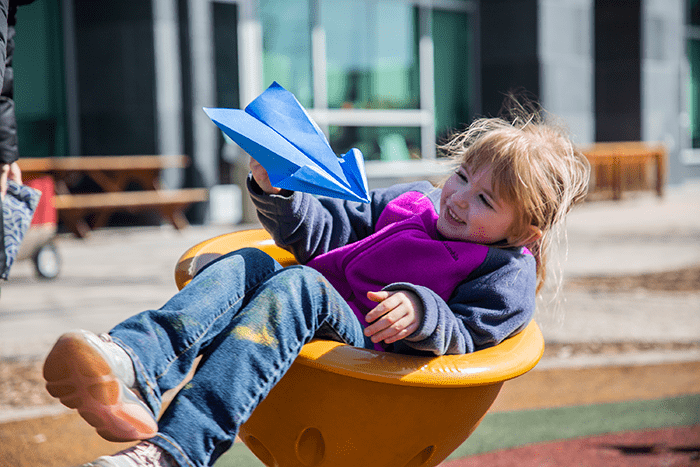Our Reggio Emilia approach to education

Our Philosophy
We follow a Reggio inspired approach to early childhood education, using these philosophical ideas in the education of young children:
- Children, teachers, and families are considered the three central protagonists in the educational process (Gandini, 1993).
- ALL children are creative thinkers, who thrive when they can explore, take risks, and use their imaginations to participate in research and construct learning within the context of interactions with other children, adults, and the environment.
- All children have a right to practice making choices, negotiate, explore without fear of criticism, make mistakes, feel safe, experience trust, be heard, and be respected within a set of boundaries established by nurturing adults.
- Teachers are critical partners in the educational process and have the responsibility to establish boundaries, nurture a sense of community, plan the environment based on individual children’s interests/needs/developmental levels, guide children’s discovery and learning opportunities, listen, observe, question and document as they engage in research side by side with the children.
- Families and family figures are children’s most consistent teachers and must be included as active participants and partners in each child’s education.
- Teachers and families should work to establish trusting relationships as they interact for the purpose of sharing goals and guiding practices for the children in the program.
- Parents and family members also share in the valuable role of enhancing the curriculum of the program as they contribute their talents, skills, and traditions with the school as experts of their home culture and heritage.
- We are dedicated to creating an environment that provokes inquiry, communication, and relationships.
Watch this video to learn more about the Reggio Emilia approach.
Central Michigan University's Child Development and Learning Lab is sponsored by the Department of Human Development and Family Studies and uses the facility for training early childhood educators and for student and faculty research.
